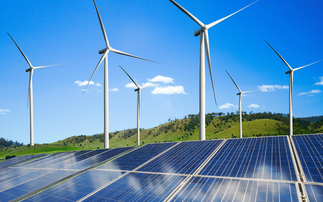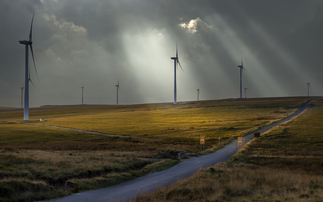Exploring the options and the savings that are possible with very little investment or effort.
The world we currently inhabit will change beyond all recognition unless we dramatically change our attitudes towards energy use.
Energy efficiency reduces running costs for businesses, lowers carbon emissions and shows the public that a company is environmentally aware. So why is it proving so difficult to convince businesses to take a serious look at their energy consumption and how to make it more efficient?
Some fear having to make large investments to purchase green technology. But energy efficient solutions are usually inexpensive and simple to put in place, often needing nothing more than some simple reasoning.
Many businesses and offices still leave their lights blazing throughout the night, while computer systems are never switched off even when they're not in use, wasting energy and adding to costs. These issues are easy to solve - a short memo or meeting reminding people to switch off lights and computers as they leave is a simple solution. Something like this can be the first step toward a change in attitudes and culture within a business.
The unique challenges faced by manufacturing and engineering firms can appear to make energy efficiency difficult to achieve; automated systems and processes usually run 24 hours a day, meaning that machinery is constantly powered up and cannot be turned off. However, there are technologies which can make massive differences to the energy consumption and maintenance costs involved in running this equipment all the time.
Variable speed drives (VSDs) are extremely cost effective when it comes to minimising the power needed for electric motors. VSDs control the speed and torque of a motor, meaning they can reduce its power needs when the motor isn't required to run at full speed. This helps to reduce the amount of electricity used and the economic and environmental costs of using so much power.
With billions of motors used all over the planet, 65% of industrial electrical energy usage is due to electric motors, which are found everywhere from sewage systems, irrigation pumps, lifts, conveyors, paper machines and power-plant fans etc.
90% of the lifetime costs involved in running an electric motor come from the energy it requires. And even a small reduction in speed can result in huge savings. For example, a pump or fan running at 80% speed needs roughly half of the energy of one running at full capacity.
An additional benefit of using VSDs is that motors will need maintenance work less often because they are no longer running constantly at full power. This is a significant advantage for any business where equipment maintenance means that work has to be halted - potentially costing firms thousands of pounds in lost production time.
VSDs are just one example of how businesses can benefit from improved energy efficiency. Business leaders need to be aware of these options and the savings that are possible with very little investment or effort. Rising energy costs mean that businesses will soon have to consider these solutions to remain competitive and successful.
Thie sponsorered content was provided by James Armstrong, an experienced journalist and broadcaster, currently writing on behalf of UK Automation - providers of new, used, refurbished and obsolete industrial automation spare parts.







